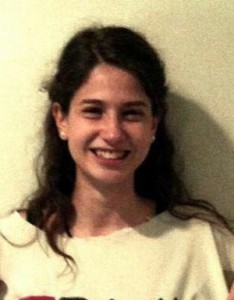Sorry it took so long to write this, but I think finally realized the true point of AfterTalk. I can’t quite describe it, but writing this post brought me to a place I had always been afraid to go, to thoughts that I didn’t want to confess to even the abyss of my computer. I went there when I wrote this piece, and although it was extremely painful at the time, the experience was followed by a new kind of healing that I had never opened myself up to before. I hope you enjoy it.
Thank you so much,
Sincerely,
Caitlin Dorman
For the past few weeks I have tried to sit down and write a blog post about my dad’s illness. My father’s 18-month battle and the years following his death in 2010 are the dominant narrative of my life, so theoretically this task should be easy. This task should be easy, because this was the story that got me internships, homework extensions, scholarships and ultimately my college acceptance. I’ve been in therapy for six years and this is all we talk about. I know this story like the back of my hand, so this post should be less of synthesis and more of selection from my greatest hits. I could write about when I said goodbye to him, and the texture of the chair I was sitting in at the time. I could write about the heavy shovel I lifted up three times to bury my dad’s coffin, and how to this day I still cannot understand why 15-year-old me didn’t bang on the wooden door in that grave and beg him to stay. Both of those are serious tearjerkers. But no, I won’t write about that.
Growing up in the wake of my father’s untimely death, one of the main obstacles I have faced is my inability to escape from my own grief narrative. In a way I am a merchant, and the currency I deal in is sadness. My main job has been articulating my experience and getting other people to cry about it. I do not see this changing any time soon. I see a long and possibly bright future of moving others to tears.
This is not at all to say that my stories are insincere. It is, in fact, the complete opposite. My memories are so raw that I haven’t been able to form clear-cut, easily identifiable emotions to go along with them. This I why I take the role of the storyteller: to elicit a reaction in others that I am still unable to bring up in myself. But things have changed. I choke on my delivery now. A short piece on my experience that should’ve taken minutes instead took weeks. Now it’s hard to connect with these stories I tell, because I feel the pressure to always end on a happy note. I strike a chord in my listener, and then I quickly backtrack into how grateful I am to have such a wonderful support network, etc., etc. I need to show people that I am a worthy investment, not a damaged good that’s going to deteriorate in the years to come.
At this point I am sure that you can tell this way of life is no longer satisfying; that this is no way to heal. I would stop all of the sugarcoating, but I don’t know how to do so. If not this story, then what? What can I possibly say?
I lost my father when I was fifteen. Perhaps the issue is that I don’t want to tell adult stories anymore. I don’t want to perform for my peers. I want to write a children’s book. Here it goes:
A girl couldn’t find her dad, so she wrote him a letter.
Dear Daddy,
I miss you. Every night I stay up and wait for the sound of your key unlocking the door, but you don’t come home. I don’t understand why you’ve been gone so long, but I forgive you. Just please come back soon.
Love Caitlin
He finally received the letter, and he came home. They lived happily ever after.


Heartbreakingly beautiful. Wow. You are a tremendously gifted writer. Processing the death of a parent at that age seems impossible to me. Allowing us a glimpse of your journey is as generous as it is weirdly fascinating. I didn’t want it to stop yet I felt I shouldn’t be reading it. It was as welcoming as it was intimate. Everything about this points to your being a truly remarkable person. I can only imagine how proud your Dad would be.